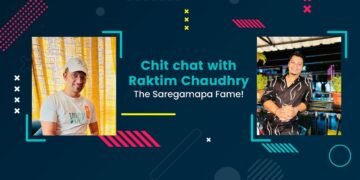Welcome to our first of the many Chit Chats with the famous personalities from the world of entertainment. Today we connect with Graham Jones, “a very talented director” who has been known for his work through independent movies covering various difficult subjects. Lets see how the Chit Chat went and know more about the filmmaker.
Know more about Graham Jones
Graham Jones was born on 25 November 1973 and is a popular Irish filmmaker who has directed some of the popular films including,
| Year | Film |
| 1997 | How to Cheat in the Leaving Certificate |
| 2005 | Fudge 44 |
| 2012 | The Green Marker Scare |
| 2013 | The Randomers |
| 2014 | Davin |
| 2015 | The History Student |
| 2016 | Nola and the Clones |
| 2017 | Sunshine Ukulele |
| 2019 | Rainy in Glenageary |
Chit Chat with Graham Jones
Lets take a look at the Chit Chat session between Graham Jones and our Founder, Himanshu Suri.
Tell us about your project “Silicon Docks”?
Our new – and completely animated – film takes place during the dying days of Trump’s presidency and portrays a doomed Dublin pub crawl conducted by a group of American tech moguls, prohibited from visiting one another’s European HQs during the early days of Covid-19 but urgently needing to agree on whether or not to sign a critical EU agreement.
The satirical, urban odyssey features great conflict between Mark Zuckerberg of Facebook and his arch nemesis Evan Spiegel who created Snapchat, also tension between space racers Jeff Bezos and Elon Musk – not to mention many other dramas endured by the cold and frustrated ‘tech rockstars’ as they stumble around locked-down Dublin in desperate need of a pint. We really enjoyed making it!
What was the idea/inspiration behind this project?
Over here in Ireland we just have so many giant U.S. tech corporations operating in Silicon Docks, which for any non-Irish readers is a small area just minutes from where I grew up in the eighties. All these tech giants headquartering their European operations so close to where I took my first steps has really made me reflect on everyday tech users, regular tech workers and just our modern tech society as a whole. I try to keep my eyes and ears open and this is what I saw and heard and most importantly felt about the big tech companies…
Why did you make this project?
It really did feel like a valid experiment. Not just an experiment in art or filmmaking – although Kasia Wiśniewska’s 2D animation is certainly innovative. Moreover, I viewed it as a social or perhaps cultural and maybe even technological experiment. Quite literally, a lab experiment.
- What happens if we take a sample group, lets say 10 early pioneers of the web and subject them to the same kind of distortions that everybody else endures online in the 21st century?
- Will such tech moguls suddenly object to the normal operations of the world they designed, when they are placed under the magnifying glass themselves?
- What might the response of these billionaires, or possibly their lack of a response, say about that very world?
How will these doctors of the internet react to a taste of their own medicine!
What are you working on now?
At the moment, I am focused on doing publicity for ‘Silicon Docks’…
What are some of your favourite movies?
There are so many movies that I appreciate, it’s really difficult to pick favourites – but I like ‘The Long Goodbye’ by Robert Altman and ‘The Heartbreak Kid’ by Elaine May.
What kind of films have you directed?
It’s very difficult for me to describe my own work – but everyone knows there are usually some characters trying to overcome some form of oppression and a slightly weird sense of humour!
Do you have any advice for other filmmakers?
The key to developing as a filmmaker is ‘shooting and cutting’. This was quite difficult during the era of Super 8 because you had to buy film and send it away to get processed and printed first. It became much easier when video cameras became mainstream.
But nowadays it’s even more accessible because most of us carry around a little video camera in the form of our phone – and there are even apps for editing on the phone, editing is what I mean by ‘cutting’. The point is that basically anyone can practice ‘shooting and cutting’. You do enough shooting and cutting, you begin to learn the language of filmmaking…
Is there anything else you would like to share with us?
Well, I think it’s good for people to seek out the films they like – rather than be served a curated group of films. There are incredible indie movies out there, but you do have to look for them.
It was a great chit chat session, Graham! We really loved talking to you today. For more interesting conversations, follow us and stay tuned for more!



























